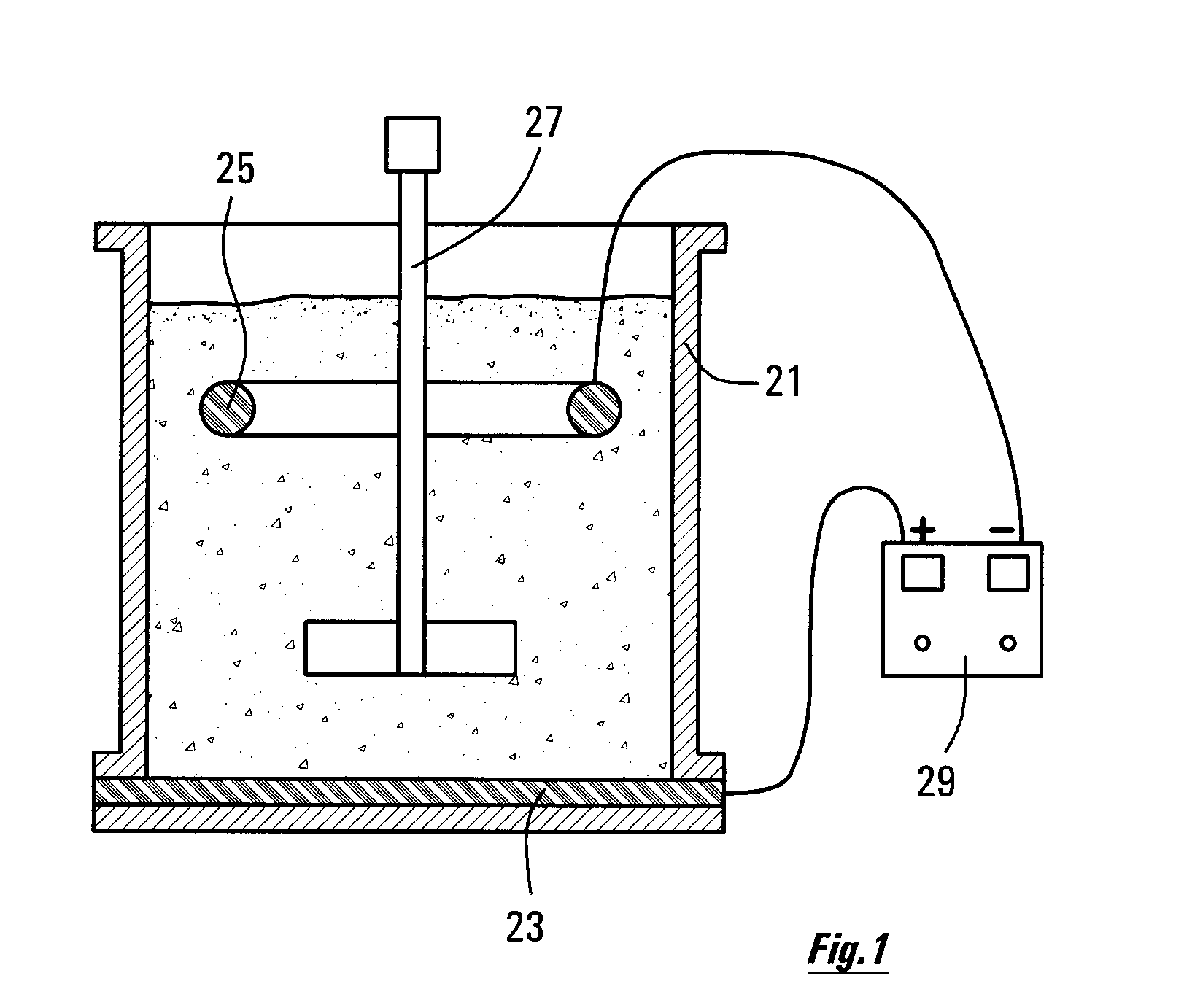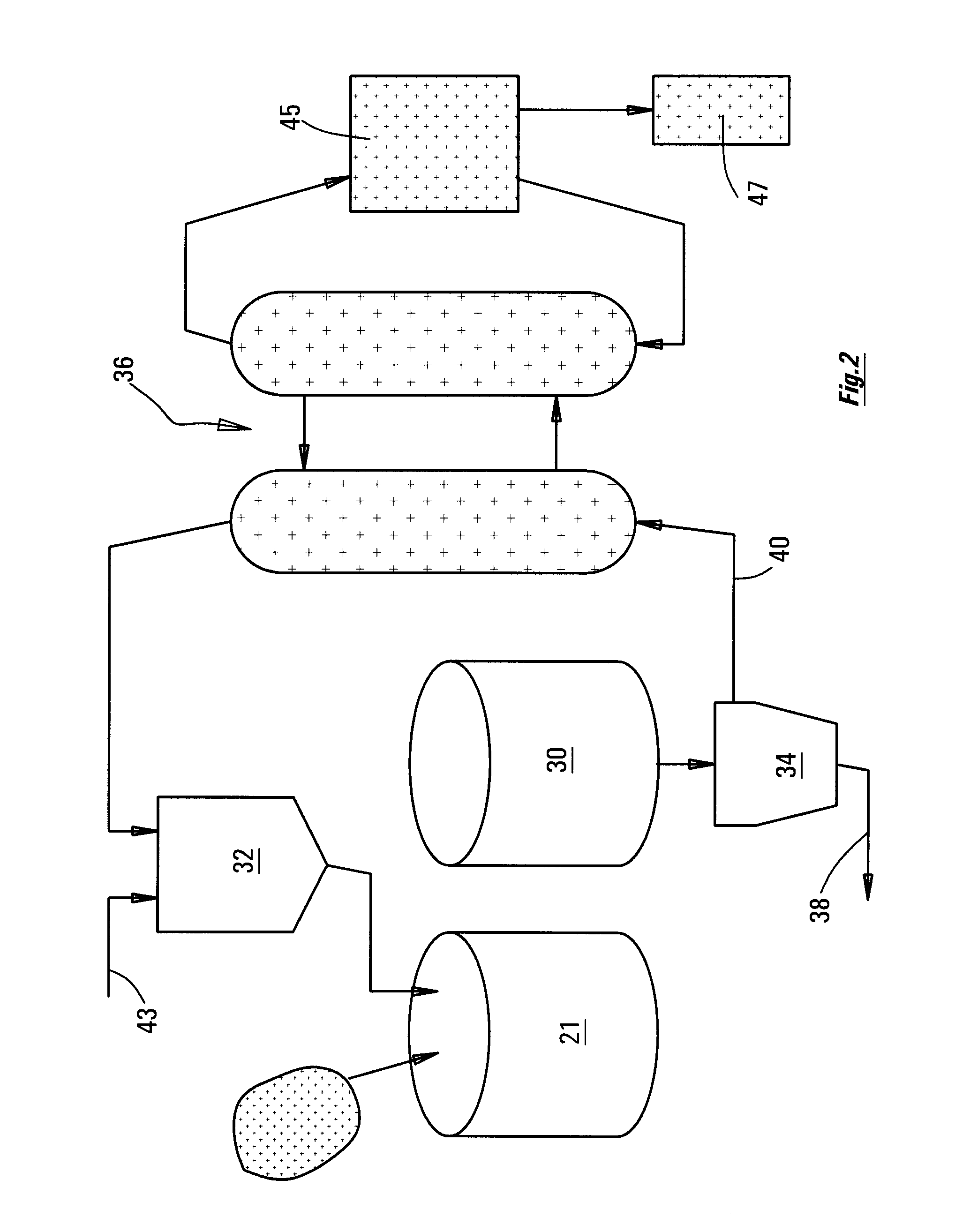Extraction of metals from sulphide minerals
a technology of sulphide minerals and metals, applied in the direction of dissolving, manufacturing converters, electrolysis components, etc., to achieve the effect of increasing the ra
- Summary
- Abstract
- Description
- Claims
- Application Information
AI Technical Summary
Benefits of technology
Problems solved by technology
Method used
Image
Examples
Embodiment Construction
[0033]The technology will now be further described with reference to the accompanying drawings, in which:
[0034]FIG. 1 is a diagram showing some items of equipment arranged for promoting some of the reactions as described herein.
[0035]FIG. 2 is a diagram showing the equipment of FIG. 1 incorporated into an overall circuit.
[0036]It is recognized that what is required, in order for it to be possible to leach the nickel out of iron sulphide (pyrrhotite) tailings, is for the procedures as described herein to be put in place, that will create the rapid breakdown of pyrrhotite. It has been recognized that, as the pyrrhotite mineral dissolves, the (physically or chemically) entrained nickel, too, will be released, and will enter into solution in the leaching acid.
[0037]When designing a system for leaching nickel from a slurry of the sulphide minerals in acid, the designer should set up the procedure of first activating the mineral for a time period T1. This is done by creating an oxidizing ...
PUM
| Property | Measurement | Unit |
|---|---|---|
| Temperature | aaaaa | aaaaa |
| Electric potential / voltage | aaaaa | aaaaa |
| Time | aaaaa | aaaaa |
Abstract
Description
Claims
Application Information
 Login to View More
Login to View More - R&D
- Intellectual Property
- Life Sciences
- Materials
- Tech Scout
- Unparalleled Data Quality
- Higher Quality Content
- 60% Fewer Hallucinations
Browse by: Latest US Patents, China's latest patents, Technical Efficacy Thesaurus, Application Domain, Technology Topic, Popular Technical Reports.
© 2025 PatSnap. All rights reserved.Legal|Privacy policy|Modern Slavery Act Transparency Statement|Sitemap|About US| Contact US: help@patsnap.com


